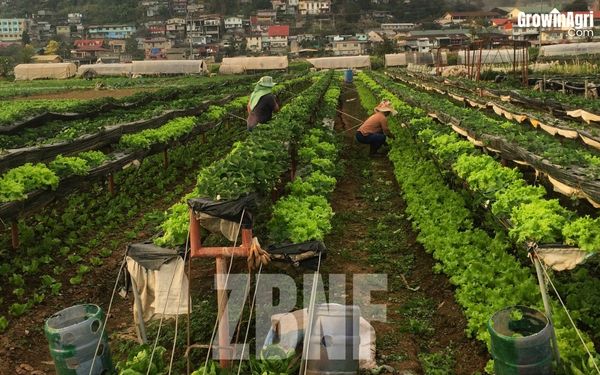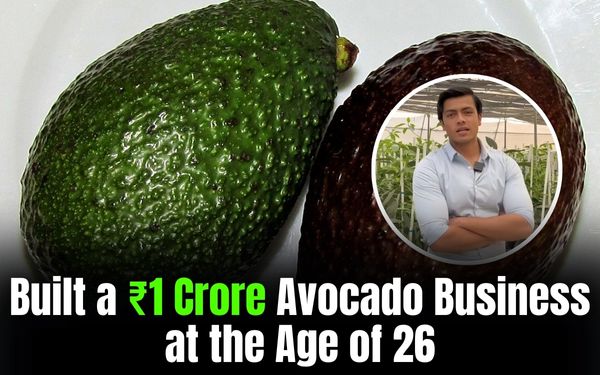There are various methods of farming, but ultimately, the primary goal is to grow crops for food. Some farming techniques result in higher yields, while others may produce good yields but could harm the environment. Certain methods are challenging to master yet are beneficial for the environment and sustainable; if practiced correctly, they can yield even better and higher outputs. One such method is Zero Budget Farming, also known as Zero Budget Natural Farming (ZBNF).
Zero Budget Farming
Zero-budget farming is a method of farming in which no external inputs are used, such as chemical pesticides or fertilisers. This isn’t any new method, but it is the traditional Indian way of farming.
The concept of zero-budget farming was popularised by Subhash Palekar in the 1990s. He stated that all the necessary nutrients for the plant’s growth are naturally present in the environment; hence there’s no need for chemicals.
The Core Principle of ZBNF
The following are the core principles of zero-budget farming.
Zero Budget
As the name itself suggests, there will be zero to little investment in farming. But how can the cost of farming be reduced by using natural resources that are already available in nature? No chemical fertilisers or pesticides are used. Mainly, cow-based products are used (for that, you need to have your own cows to actually have a zero budget).
Soil Revitalisation
It means treating soil as a living ecosystem, so you need to feed microbes that will grow and support plant growth. There are 5 ways by which you can revitalise the soil:
- Jeevamrutha – Microbial Life Booster
In this, a concoction is made up of many varieties of natural ingredients which are mixed and kept in shade for a few days to encourage microbial growth. This mixture is then added to the soil or the roots of the plants. This helps in improving the soil’s fertility. - Mulching (Acchadana) – Natural Soil Cover
Mulch is a protective layer made from dried leaves, crop residue, or green manure. It prevents topsoil erosion, retains moisture, provides organic matter as it decomposes, and supports the growth of earthworms and microbes. - Whapasa – Balanced Moisture and Air
Focuses on creating moisture + air conditions in the soil instead of flooding it. Frequent light irrigation is preferred over deep watering. Encourages better root growth and microbial activity.
No Chemical Inputs
In zero-budget farming, no chemicals are used; instead, natural fertilisers are used. Instead of pesticides, natural pest management is done, such as intercropping, where different kinds of crops are grown together, which will create an ecosystem that might help in pest management. Also, botanical extracts are used to control pests and diseases.
Indigenous Seeds
In zero-budget farming, no hybrid or exotic seeds are used as these will be expensive, and also they might not adapt to local climates and soil conditions. Indigenous seeds are used as they are resilient and can thrive in the local climates.
Integration of Livestock
Cows are the key component in zero-budget farming; their urine and dung are used to make Jeevamrutha or natural fertilisers for the farm. Indigenous breeds are mainly used as their dung and urine have higher concentrations of microorganisms compared to cross-breed cows.
Benefits of Zero Budget Farming
Zero-budget farming is highly beneficial to the farmer, as the cost is almost zero. Let’s understand the benefits of zero-budget farming in the following points:
Zero Production Cost
As most of the materials are naturally sourced and a lot of labour is involved, no machinery is used in this type of farming. There will be very little to no cost of production. Hence, all are natural and organic with no pesticides and chemicals.
Improved Soil Health
As no chemicals are used, and they are the main cause of degradation of soil health. As mostly natural ingredients such as cow dung, urine, kitchen waste, etc., are used, all these traditional but effective techniques will help in increasing the fertility of the soil without harming soil health.
Minimal Dependency on External Inputs
As we need zero budget in this type of farming, there’s rarely any use of machinery; instead, all traditional tools are used in this type of farming. All naturally available materials are used.
How fascinating is it that we can do farming or earn ourselves food without any expensive tools?
Sustainable Farming
As there’s no chemical washing off the soils and running into and ruining the river water, damaging the natural structure of the ecosystem, this will be prevented. Hence, the long-term benefits are high as they don’t harm the ecosystem. Encouraging the natural cycle of nutrition and growth.
Organic Farming
The best part of this type of farming is that there is zero use of chemicals. Whatever you produce is totally organic and really healthy vegetables as compared to all those vegetables that are coated with a layer of chemicals. These chemical vegetables are shiny and beautiful, but they are filled with harmful chemicals, which should be avoided at all cost.
Challenges of Zero-Budget Farming
As we have seen how glorious, chemical- and budget-friendly this type of farming is, in order to do zero-budget farming, you need to have a good amount of knowledge, and the yield will be less in the initial days. It also has a few challenges which can easily be overcome:
Difficult Farming Method and Training Gap
This type of farming method is difficult to follow, as usually chemicals are quick fixes to any solution, whether it be pests or fertilisers. As we won’t be using any chemicals, and instead we are following the natural way, it will take some time for your soil and you yourself to get used to this type of farming. You need to have a good amount of knowledge so that you can create a whole ecosystem for your crops, from pest management to cows, their dung and urine, to making natural fertilisers.
Labour Intensive
This type of farming is highly labour intensive, from preparing soil by adding all the natural fertilisers, manure, and compost, to taking care of the cow dung etc. This method might not show results or higher yields in the first year itself; instead, it will take some time to tackle all the problems naturally.
Lower Yields
In this method, it might not show results or higher yields in the first year itself; instead, it will take some time to tackle all the problems naturally. As every farm has its own ecosystem, they will require the solutions according to the location, soil, etc. So, there is no standard method of farming; instead, you need to understand the area, all the natural resources available nearby, and how to use them effectively without harming nature.
And it will take a few months to years for you to be fully equipped with the kind of knowledge in order to produce good yields.
Zero-budget farming demands a solid understanding of natural farming, patience, and community support. It is one of the eco-friendly agricultural methods, but implementing it effectively requires significant hard work to achieve good yields.
Once you discover the right approach to farming, you can expect high-quality and cost-effective yields. As a farmer committed to natural or zero-budget farming methods, you are likely to experience improved soil health, cost savings, and long-term success through persistence and dedication.






